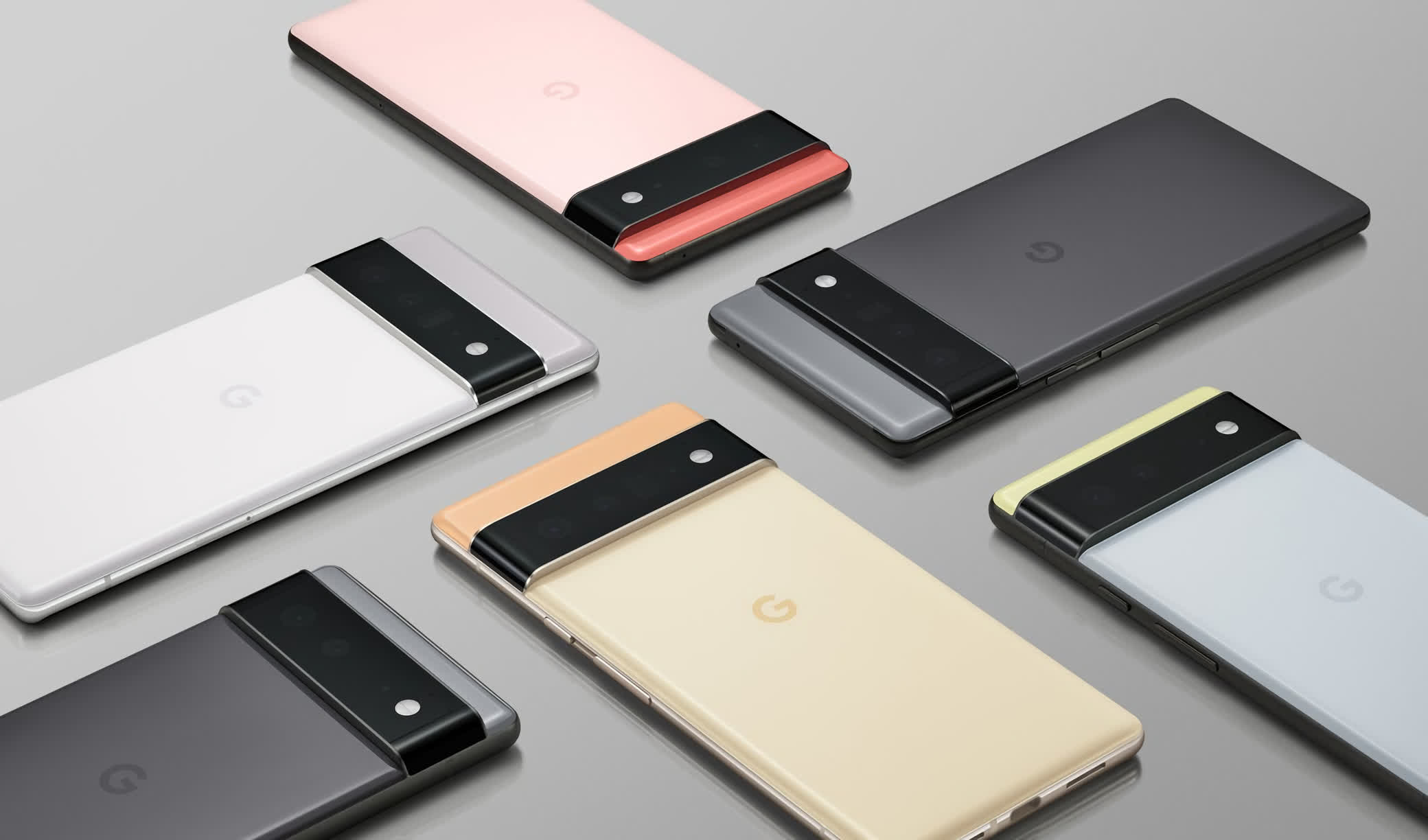Editor's take: Apple for years has exploited the benefits that come with designing hardware and software under one roof, and now Google wants its turn at bat. While it seems unlikely that Google will be able to match or top what Apple has achieved through years of refinement out of the gate, it’ll be interesting to see what the search giant brings to the table this fall.

Google has announced its next-generation Pixel family of smartphones powered by a custom System on a Chip (SoC) called Tensor.
Rick Osterloh, SVP of devices and services at Google, said the new phones “redefine what it means to be a Pixel.” They’ll feature an upgraded rear camera system with improved sensors and lenses built into a new “camera bar” and run Android 12 out of the box.
So excited to share our new custom Google Tensor chip, which has been 4 yrs in the making (📎 for scale)! Tensor builds off of our 2 decades of computing experience and it’s our biggest innovation in Pixel to date. Will be on Pixel 6 + Pixel 6 Pro in fall. https://t.co/N95X6gFxLf pic.twitter.com/wHiEJRHJwy
— Sundar Pichai (@sundarpichai) August 2, 2021
The new Pixel family will also feature Google’s Titan M2 security module and will have a heavy focus on AI and machine learning to “unlock specific experiences” for users.
In an interview with The Verge, Osterloh said they didn’t feel like they had what it took to be in the ultra high-end category before as it relates to build quality. “And this is the first time where we feel like we really have it,” he added.
Google essentially stopped there with any official details in today’s announcement, but according to The Verge, who recently had some hands-on time with prototype devices at Google’s Mountain View campus, the standard Pixel 6 will feature a 6.4-inch FHD+ display with a 90Hz refresh rate while the Pro will pack a 6.7-inch QHD+ panel with a 120Hz refresh rate.
Other noteworthy specs, per The Verge, include an in-display fingerprint sensor and multiple color options. But the most interesting bit is no doubt that custom Tensor SoC.
https://www.techspot.com/news/90639-google-teases-pixel-6-smartphones-custom-built-tensor.html